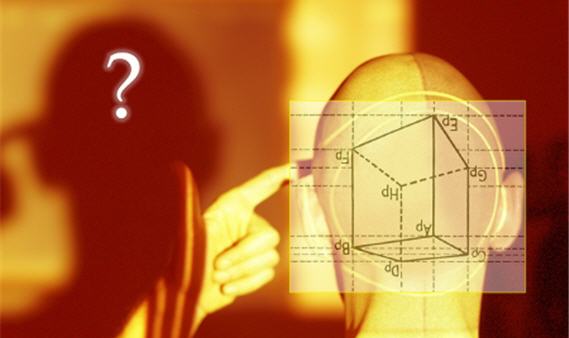Asperger’s and Gender Identity Disorder No Longer Exist
The new psychiatric diagnostic manual does away with some common ailments and adds some new ones.
The new psychiatric diagnostic manual does away with some common ailments and adds some new ones.
AP (“Asperger’s gone, dyslexia stays in first change to psychiatric manual in almost 20 years“):
The now familiar term “Asperger’s disorder” is being dropped. And abnormally bad and frequent temper tantrums will be given a scientific-sounding diagnosis called DMDD. But “dyslexia” and other learning disorders remain.
The revisions come in the first major rewrite in nearly 20 years of the diagnostic guide used by the nation’s psychiatrists. Changes were approved Saturday.
[…]
One of the most hotly argued changes was how to define the various ranges of autism. Some advocates opposed the idea of dropping the specific diagnosis for Asperger’s disorder. People with that disorder often have high intelligence and vast knowledge on narrow subjects but lack social skills. Some who have the condition embrace their quirkiness and vow to continue to use the label.
And some Asperger’s families opposed any change, fearing their kids would lose a diagnosis and no longer be eligible for special services.
But the revision will not affect their education services, experts say.
The new manual adds the term “autism spectrum disorder,” which already is used by many experts in the field. Asperger’s disorder will be dropped and incorporated under that umbrella diagnosis. The new category will include kids with severe autism, who often don’t talk or interact, as well as those with milder forms.
[…]
The shorthand name for the new edition, the organization’s fifth revision of the Diagnostic and Statistical Manual, is DSM-5. Group leaders said specifics won’t be disclosed until the manual is published but they confirmed some changes. A 2000 edition of the manual made minor changes but the last major edition was published in 1994.
Olfson said the manual “seeks to capture the current state of knowledge of psychiatric disorders. Since 2000 … there have been important advances in our understanding of the nature of psychiatric disorders.”
Catherine Lord, an autism expert at Weill Cornell Medical College in New York who was on the psychiatric group’s autism task force, said anyone who met criteria for Asperger’s in the old manual would be included in the new diagnosis.
One reason for the change is that some states and school systems don’t provide services for children and adults with Asperger’s, or provide fewer services than those given an autism diagnosis, she said.
Autism researcher Geraldine Dawson, chief science officer for the advocacy group Autism Speaks, said small studies have suggested the new criteria will be effective. But she said it will be crucial to monitor so that children don’t lose services.
The naming and recognition of disorders is as much political as it is medical. It impacts both funding decisions and the way the public perceives certain behaviors. Among the other changes:
—A new diagnosis for severe recurrent temper tantrums — disruptive mood dysregulation disorder. Critics say it will medicalize kids’ who have normal tantrums. Supporters say it will address concerns about too many kids being misdiagnosed with bipolar disorder and treated with powerful psychiatric drugs. Bipolar disorder involves sharp mood swings and affected children are sometimes very irritable or have explosive tantrums.
—Eliminating the term “gender identity disorder.” It has been used for children or adults who strongly believe that they were born the wrong gender. But many activists believe the condition isn’t a disorder and say calling it one is stigmatizing. The term would be replaced with “gender dysphoria,” which means emotional distress over one’s gender. Supporters equated the change with removing homosexuality as a mental illness in the diagnostic manual, which happened decades ago.
We’re ultimately headed down a path where we’re simultaneously all mentally ill to various degrees while nothing is normal or abnormal. While easy to lampoon, it’s probably right. We give people too much credit and too much blame for hard-wired personality traits they can’t control.







I understand the new term for Aspies is ‘software developer.’
I have another term for “severe recurrent temper tantrums,” it’s “the 2012 Election”
I have a son with Asperger’s although his developmental pediatrician has always believed it should be part of the autism diagnosis-he has long been an advocate for the change that was made.
It will be interesting to see what happens with the new diagnosis and whether it results in better services.
I also think there is going to be a group of parents who will balk at the autism label who were okay with Asperger’s. Some people get very hung up on the labels.
Gender Dysphoria from Gender Identity Disorder isn’t a bad change, based on how my trans friends describe their experiences. Though Incorrect Plumbing would be even better.
Removing Asperger’s from the DSM in favor of “autism spectrum disorder” is a step in the right direction. The idea here is getting people the services they need based on actual, formal diagnoses. Too many kids with Asperger’s weren’t getting the services they needed and recognizing that it’s on the autism spectrum should facilitate improvement.
I agree with all of the changes I’ve heard of so far.
We’ve know Asperger’s was on the autism spectrum for quite a long time, there was no need for a separate name for a certain point on the spectrum.
Gender dysphoria is also a step in the right direction, transmen and women that I’ve spoken to certainly don’t think it’s a disorder, and it’s something that we’re going to have to get used to as a society.
I don’t know enough about the new DMDD diagnosis, but I’m happy that we’re going to stop lumping kids into the bipolar diagnosis that don’t quite fit the mold. Bipolar is a very specific diagnosis, and I’ve never felt that most of the young kids that were diagnosed as such fit it well.
I have to admit this sentence confuses me. On its face, it sounds like a wash.
@Boyd:
Sure – if it happened in equal measures for each person.
@Boyd: @John H: Right. People who are outgoing, friendly, and empathetic are given enormous credit while those with the opposite characteristics are punished. That’s probably fine, to the extent that the former set of behaviors is pleasing and the latter isn’t. But we ought to realize that people have approximately as much control over these as they do their height or eye color.
Where is Republicanism on the Autism scale? Lacks empathy and basic math skills, commonly respond to critics as “poopyheads”.